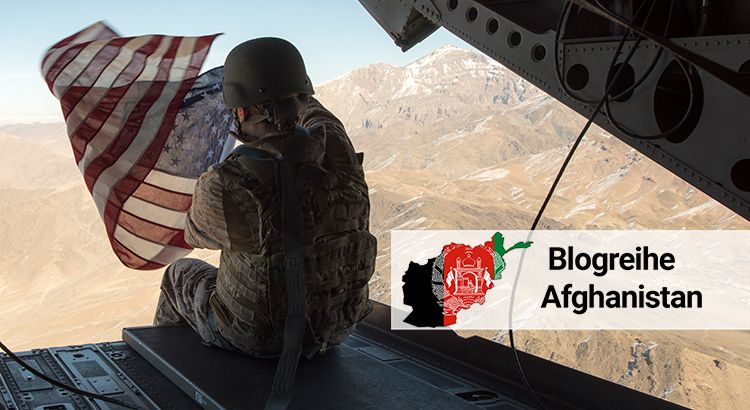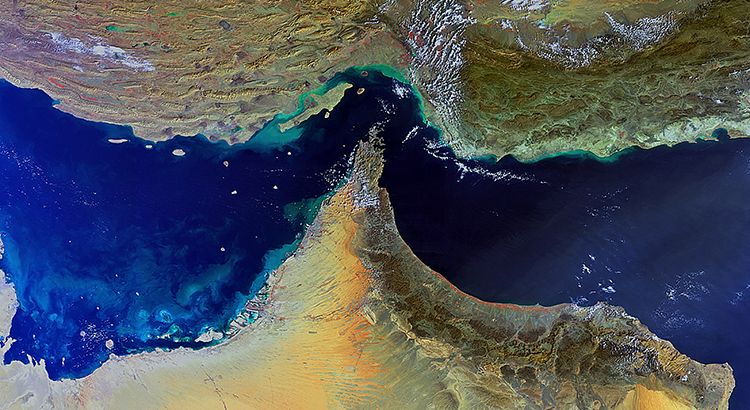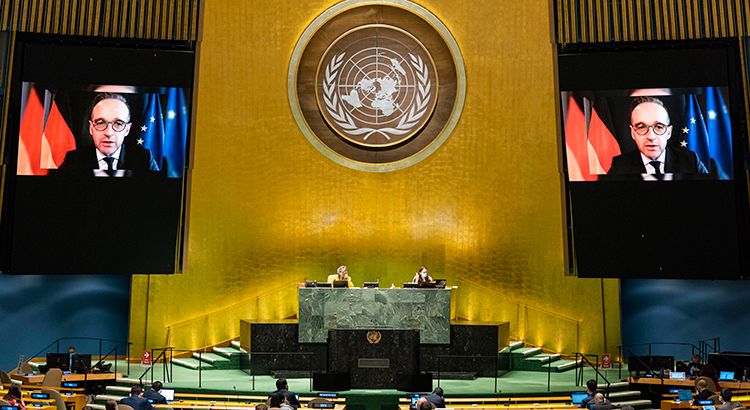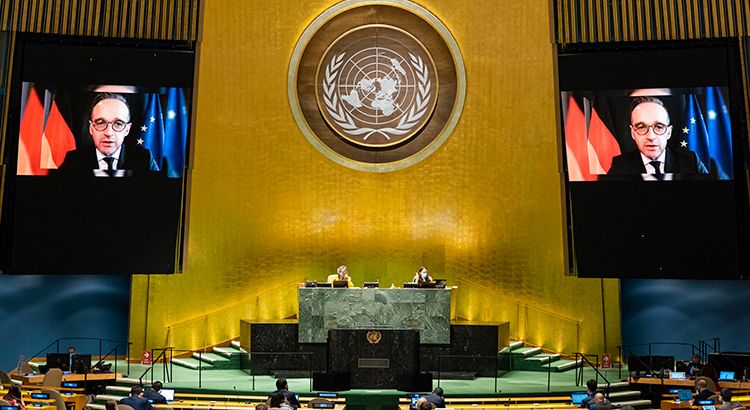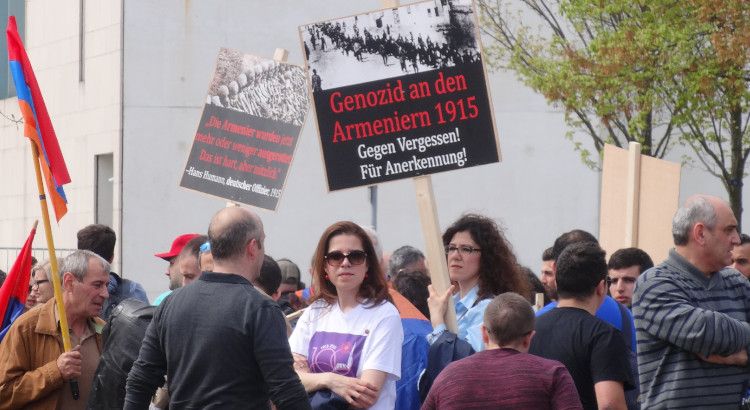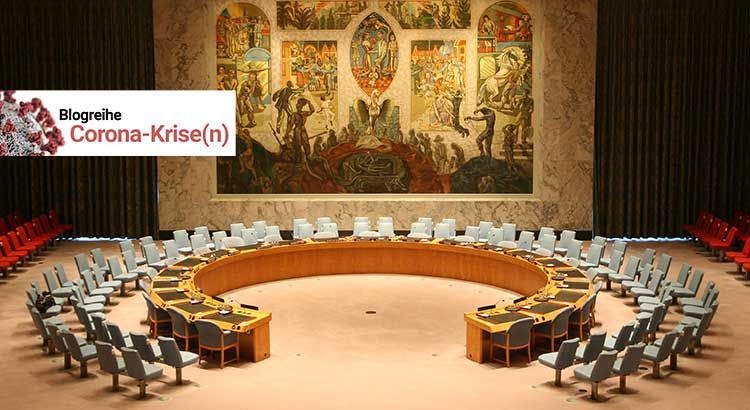Schlagwort: Diplomatie
Wer eine neue Außenpolitik will, braucht auch ein neues Außenministerium
Die UN als globaler „Streitraum“. Zur Aktualität von Dag Hammarskjölds Erbe
Dag Hammarskjöld? War das nicht der mit dem mysteriösen Flugzeugabsturz im Kongo? Außerhalb des kleinen Kreises derer, die sich intensiv mit der Geschichte der Vereinten Nationen beschäftigen, verblasst die Erinnerung an den zweiten UN-Generalsekretär zunehmend. Wir wollen den 60. Todestag von Dag Hammarskjöld zum Anlass nehmen, um nochmals einen Blick auf dieses „Wunderkind aus Schweden“ zu werfen – und zu fragen, inwiefern Hammarskjölds Erbe heute noch von Bedeutung ist. Unser Blick richtet sich dabei vor allem nach vorne: In Anlehnung an Hammarskjöld argumentieren wir, dass die UN nur als globaler „Streitraum“ zukunftsfähig ist.
Dag Hammarskjöld wurde am 29. Juli 1905 im schwedischen Jönköping geboren. Die Hammarskjölds waren zu dieser Zeit eine bekannte Adelsfamilie in Schweden, aus der über Generationen hinweg leitende Beamte und hohe Staatsdiener hervorgegangen waren. Dass Dag nach einem Studium mit Bestnoten und einem Doktortitel der Universität Uppsala ebenfalls in den Staatsdienst eintrat, kam deshalb – vermutlich für alle Beteiligten – wenig überraschend. Mit nur 27 Jahren wurde Hammarskjöld Staatssekretär im Finanzministerium und war, auch aufgrund seines unermüdlichen Arbeitseinsatzes, kurze Zeit später in der gesamten schwedischen Administration als „some kind of wonderboy“1 bekannt.
Nach dem Zweiten Weltkrieg widmete sich Hammarskjöld zunehmend der internationalen Politik, vertrat sein Land beispielsweise 1947 beim Ausschuss für den Marshall-Plan in Paris. Auch auf dem internationalen Parkett machte sich das „Wunderkind“ aus Schweden schnell einen Namen und wurde kurze Zeit später zum stellvertretenden Außenminister ernannt. Im Jahr 1953 war Dag Hammarskjöld auf der internationalen Bühne deshalb kein völlig Unbekannter mehr, trotzdem kam seine Nominierung zum UN-Generalsekretär überraschend. Hammarskjöld selbst hatte nicht mit einer Nominierung gerechnet, und dachte zunächst an einen April-Scherz, als er von einem Journalisten mitten in der Nacht angerufen und um einen Kommentar gebeten wurde. Brian Urquhart, Hammarskjölds langjähriger Mitarbeiter und Biograph, spricht gar von reinem Zufall: „They went searching around all over the place and, by pure accident, picked up somebody who was exactly the opposite to what everybody wanted. They thought they’d got a safe, bureaucratic civil servant, non-political – and they got Hammarskjöld.”2
Mit nur 47 Jahren wurde Hammarskjöld am 7. April 1953 zum – bis heute jüngsten – UN-Generalsekretär ernannt; und 1957 einstimmig für eine zweite Amtszeit wiedergewählt. Der Rest ist – wie man so schön sagt – Geschichte: Hammarskjölds erfolgreiche Verhandlungen mit China zur Freilassung amerikanischer Piloten; seine gelungene Deeskalation der Suez-Krise und die Aufstellung der ersten bewaffneten Peacekeeping-Mission; die heikle (und am Ende nicht erfolgreiche) Intervention in der gerade unabhängig gewordenen Republik Kongo; und nicht zuletzt sein – bis heute nicht endgültig aufgeklärter – Tod bei einem Flugzeugabsturz am 18. September 1961 in Nordrhodesien.3 In seinen acht Jahren als Generalsekretär wurde Hammarskjöld zum „living symbol“ und prägenden Gesicht der Vereinten Nationen.4 Er bekam posthum den Friedensnobelpreis verliehen, John F. Kennedy adelte ihn als „greatest statesman of our century”, und auch das nach seinem Tod erschienene spirituelle Tagebuch „Markings“, welches international zum Bestseller wurde, befeuerte Hammarskjölds weltweite Popularität.5
Über all das und noch viel mehr wurde bereits ausführlich geschrieben: Hammarskjölds Leben und Wirken füllt ganze Bibliotheksregale.6 Wir wollen deshalb den Blick nach vorne richten und anlässlich seines 60. Todestages fragen, inwiefern Hammarskjölds Erbe heute noch von Relevanz ist. Was lässt sich von Hammarskjöld mit Blick auf die aktuellen Herausforderungen lernen, mit denen die Vereinten Nationen zurzeit konfrontiert sind?
Dag Hammarskjölds „UN-Erbe“
Es ist weder möglich noch unsere Absicht, den vielen Innovationen, die Dag Hammarskjöld in seiner Zeit als UN-Generalsekretär angestoßen hat – darunter etwa die Entwicklung des bewaffneten Peacekeeping7 – hier auch nur ansatzweise gerecht zu werden. Wir greifen stattdessen einen Grundgedanken von Hammarskjöld heraus, den wir als zentral für Überlegungen zur Zukunft der UN erachten, nämlich sein Verständnis der Vereinten Nationen als globaler Streitraum. Dieses Verständnis spiegelt sich u.a. in den folgenden zwei Themenkomplexen wider, die beide bis heute eng mit dem Namen Hammarskjöld verbunden sind:
(1) „For all the others“ – gleichberechtigte Perspektiven in einer ungleichen Welt
Der erste Aspekt betrifft das Verhältnis der UN zu den geopolitischen Großmächten. Hammarskjöld vertrat mit Verve die Position, dass seine Loyalität als UN-Generalsekretär einzig und allein den Zielen der UN-Charta gelte. Unparteilichkeit war für Hammarskjöld das höchste Gut, jedoch verstand er diese nicht etwa als passive „Neutralität“, sondern als Auftrag und Verpflichtung zur aktiven Verteidigung der Werte der Charta.8 Sah er diese von den Großmächten verletzt, positionierte er sich ohne Zögern auch gegen die USA oder die Sowjetunion.9 Er zeigte dabei „klare Kante“ und versuchte so, die UN aus den Fängen bzw. der Lagerbildung des Kalten Krieges herauszuhalten. Darüber hinaus machte er sich im Verlauf seiner Amtszeit immer mehr zum Anwalt der kleinen und mittleren Staaten in der UN. In seiner berühmt gewordenen Antwort auf eine harte persönliche Attacke des sowjetischen Staatschefs Nikita Chruschtschow formulierte Hammarskjöld deutlich, für wen die UN aus seiner Sicht vor allem da seien: „It is not the Soviet Union or, indeed, any other Big Powers which need the United Nations for their protection. It is all the others. […] I shall remain in my post during the term of my office as a servant of the Organization in the interests of all those other nations as long as they wish me to do so”.10 Hammarskjöld vertrat demnach sehr entschieden die Position, dass globale Konflikte, die alle betreffen, auch mit allen diskutiert werden müssen. Die Vereinten Nationen waren für ihn der Ort, an dem alle Staaten – ungeachtet der globalen Machtverteilung – gleichberechtigt ihre jeweiligen Positionen und Perspektiven einbringen können sollten.
(2) Stille Diplomatie – Vertrauensbildung im Konflikt
Der zweite Aspekt steht in Verbindung mit der stets aktuellen Frage, wie aufkommenden Konflikten zwischen Staaten präventiv begegnet werden kann. Hammarskjöld praktizierte zu seiner Zeit oftmals eine „stille“ bzw. vertrauliche Diplomatie. Im Unterschied zur „öffentlichen Diplomatie“ (etwa in der UN-Generalversammlung; Pressekonferenzen; etc.) zielt diese auf das vertrauliche – nicht jedoch „geheime“ – Gespräch zwischen Staatschefs von Angesicht zu Angesicht ab. Hammarskjöld sah im persönlichen Austausch, basierend auf einem gegenseitigen Vorschuss an Vertrauen, sowie im hartnäckigen Suchen nach gesichtswahrenden Lösungen eine große Chance, um Konflikte gewaltfrei und präventiv zu lösen. Seine Verhandlung mit dem chinesischen Außenminister Tschou En-Lai, in der es um die Freilassung von inhaftierten amerikanischen Piloten ging, gilt als beispielhaft für diese Form der stillen Diplomatie. Im Kern geht es dabei um Vertrauensbildung im Konflikt: Um zu vermeiden, dass sich ein Konflikt zwischen zwei Mitgliedsstaaten auf öffentlicher Bühne hochschaukelt und immer weiter eskaliert, vermitteln die Vereinten Nationen direkt zwischen den Parteien. In vertraulichen Gesprächen – und in Abwesenheit öffentlicher Schuldzuweisungen – baut sich so langsam gegenseitiges Vertrauen zwischen den Konfliktparteien auf.11 Für Hammarskjöld waren die Vereinten Nationen folglich nicht nur der Ort, an dem alle Mitgliedsstaaten ihre Perspektiven gleichberechtigt einbringen und Konflikte austragen können, sondern auch der Akteur, der in der Lage ist, zwischen einzelnen Mitgliedsstaaten vertraulich zu vermitteln.
Gestern, heute, morgen: Die UN als globaler „Streitraum“
In diesen zwei Elementen – der UN „for all the others“ und der „stillen Diplomatie“ – steckt Hammarskjölds Verständnis der Vereinten Nationen als globaler „Streitraum“. Dieser Streitraum ermöglicht sowohl die öffentliche Austragung von Konflikten zu Fragen der Weltordnung, als auch vertrauliche (und vertrauensbildende) Gespräche zwischen zwei einzelnen Konfliktparteien. Hammarskjöld hat das früh verstanden: Er war nicht nur ein begnadeter Diplomat, sondern auch ein Meister darin, die UN in ihrer (potenziellen) Rolle und Funktion zu erkennen. Dabei hatte er stets fest im Blick, dass die UN „für alle“ da sein müssen – und einen Raum darstellen, in dem Interessenskonflikte nicht geleugnet, sondern konstruktiv ausgetragen werden können: „We can look at the Organization as a body where ideologies are permitted to clash inside the wider framework of a fundamental unity of purpose for peace.”12 Die UNO vertritt einen allgemeinen Willen, keinen partikularen: Sie muss deshalb Differenzen zulassen und gleichzeitig „working compromises“ ermöglichen – sie muss ein globaler Streitraum sein.
Für Hammarskjöld ist die universelle Mitgliedschaft in der UNO dementsprechend ein zentraler Baustein für ihren Erfolg. Für ihn ist entscheidend, dass die UN für alle Staaten offen sind – und nicht zu einem Club von Gleichgesinnten verkommen: „The idea of the United Nations as a club to which only the like-minded will be admitted, in which membership is a privilege and expulsion is the retribution for wrong doing, is totally unrealistic and self-defeating.”13 Gerade deshalb sei es gefährlich, wenn manche Staaten die UN nicht mehr als zentrales Forum für die Aushandlung von Konflikten ansehen. Die UN, so Hammarskjöld, müssten stets im Zentrum des Geschehens sein und dürften nicht von anderen Initiativen oder Foren untergraben werden: „We must not let the United Nations become a mere hostage to the conscience of the Member States, a shrine at which obeisance is paid at the appropriate seasons while the real action goes on elsewhere.”
Heute jedoch droht genau diese Gefahr. Viele Staaten sehen die UN nicht mehr als zentrales Forum, um ihre Vorhaben voranzutreiben. Sie nutzen die UN zwar vielfach noch als „Service-Agentur“, die einzelne Programme umsetzen kann – aber nicht mehr als Anlaufstelle, um politische Differenzen auszutragen und mit anderen Staaten nach Lösungen für die globalen Probleme unserer Zeit zu suchen. Keine Frage: Allianzen für Multilateralismus oder „Summits for Democracies“ können wichtige Impulse setzen und Themen auf die Agenda bringen. Aber als „like-minded clubs“ sind sie eben – ganz bewusst – keine globalen „Streiträume“. Genau diese Räume aber brauchen wir heute mehr denn je, nicht zuletzt mit Blick auf die zunehmenden Großmachtrivalitäten. Die UN ist wie keine andere Institution dafür prädestiniert, einen solchen Streitraum zu bieten. Will sie zukunftsfähig bleiben, muss sie sich deshalb – trotz aller aktuellen Schwierigkeiten14 – in Anlehnung an Hammarskjöld genau dies wieder verstärkt zum Ziel setzen.
Um jedoch überhaupt als UN „for all“ agieren zu können, müssen die Vereinten Nationen unabhängiger von ihren Mitgliedsstaaten werden, insbesondere von den finanzkräftigen. Die Vereinten Nationen müssen eigenständig steuern können, Akzente setzen und dort intervenieren, wo sie Bedrohungen und Chancen für Frieden und Sicherheit sehen. Das kann nur gelingen, wenn die UN mehr finanzielle Mittel ohne Zweckbindung erhalten, über deren Verwendung dann in den entsprechenden multilateralen Gremien entschieden werden kann.15 Auch die aktuell auf Eis liegende Reformdiskussion bzgl. des UN-Sicherheitsrates mit seiner aus der Zeit gefallenen Machtasymmetrie sollte in diesem Zusammenhang dringend wiederbelebt werden.
Dag Hammarskjöld, zweiter Generalsekretär der UN (1953-1961)
„It is not the Soviet Union or, indeed, any other Big Powers which need the United Nations for their protection. It is all the others.”16
„The UN is faith and works – faith in the possibility of a world without fear and works to bring that faith closer to realization in the life of men”.17
„Our work for peace must begin within the private world of each one of us. To build for man a world without fear, we must be without fear. To build a world of justice, we must be just. And how can we fight for liberty if we are not free in our own minds? How can we as others to sacrifice if we are not ready to do so?”18
„Everything will be all right – you know when? When people, just people, stop thinking of the United Nations as a weird Picasso abstraction and see it as a drawing they made themselves.”19
„I take pride in belonging to the family of grasses, and I remain quite green in spite of a lot of trampling.”20
Darüber hinaus sind gerade die „westlichen“ Staaten in der Pflicht, die UN wieder zum zentralen Gremium der Weltpolitik zu machen und sie als globalen Streitraum wiederzubeleben, der allen offen steht. Dazu gehört, dass der bereits beworbene „Global Summit for Democracy“, den die neue US-Administration unter Präsident Biden plant, keine Veranstaltung der Demokratien ist – kein Club von Like-Minded, die sich ihrer normativen Überlegenheit versichern – sondern stattdessen ein Angebot an alle (UN-Mitglieder) darstellt, über die Vorzüge und Nachteile von Demokratie offen zu streiten und die gemeinsamen Grundlagen für das Handeln in einer geteilten Welt neu zu verhandeln. Ein solcher Streit braucht Mut, denn sein Ausgang ist zwangsläufig offen. Doch mit Blick auf die Zukunft der globalen Weltordnung wird es ohne diese Auseinandersetzung nicht gehen.
Dag Hammarskjölds humanistisches Erbe – Symposium im Frankfurter Haus am Dom
Am Freitag, den 3. September 2021, 14-17 Uhr, veranstaltet die HSFK, gemeinsam mit der Katholischen Akademie Rabanus Maurus, der Evangelischen Akademie Frankfurt und dem Schwedischen Honorargeneralkonsulat Frankfurt, ein Symposium zum unermüdlichen Engagement Dag Hammarskjölds für eine gerechtere und friedlichere Welt und zu seinem humanistischen Erbe 60 Jahre nach seinem tragischen Tod. HSFK-Leiterin Nicole Deitelhoff diskutiert dazu unter anderem mit Per Anders Thöresson, dem Botschafter des Königreichs Schweden in Deutschland.
Die Veranstaltung im Frankfurter Haus am Dom wird als Livestream bei YouTube übertragen. Weitere Informationen finden Sie unter www.hsfk.de/veranstaltungen.

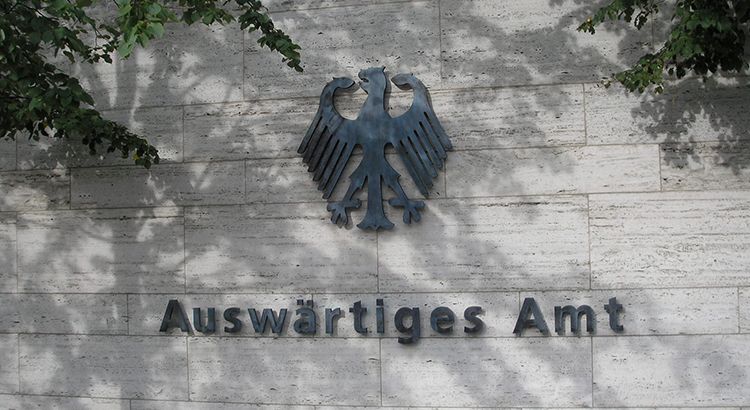
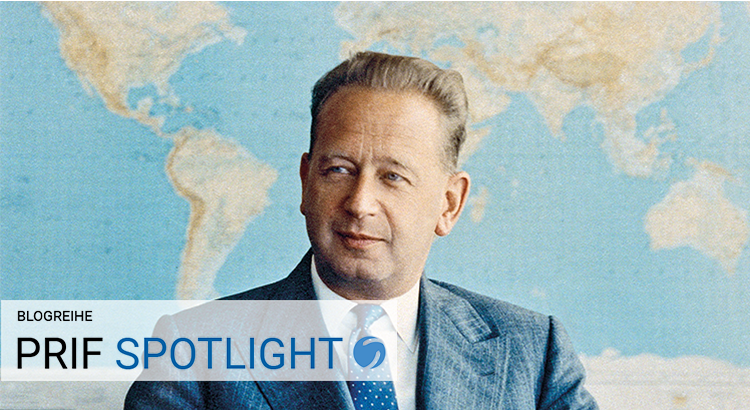
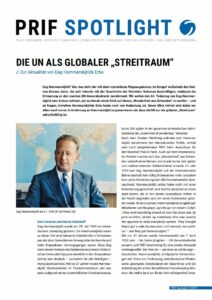 Download (pdf):
Download (pdf): 